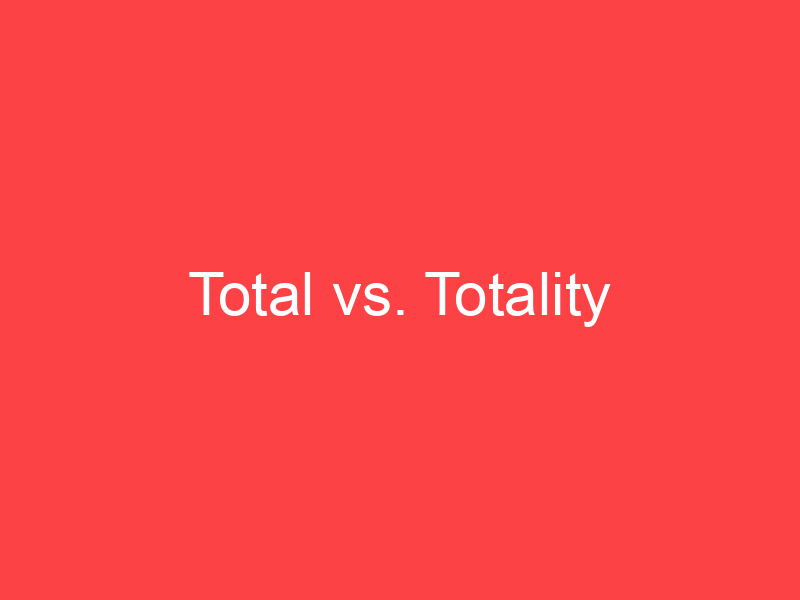-
Total (noun)
An amount obtained by the addition of smaller amounts.
“A total of £145 was raised by the bring-and-buy stall.”
-
Total (noun)
Sum.
“The total of 4, 5 and 6 is 15.”
-
Total (adjective)
Entire; relating to the whole of something.
“The total book is rubbish from start to finish.”
“The total number of votes cast is 3,270.”
-
Total (adjective)
(used as an intensifier) Complete; absolute.
“He is a total failure.”
-
Total (verb)
To add up; to calculate the sum of.
“When we totalled the takings, we always got a different figure.”
-
Total (verb)
To equal a total of; to amount to.
“That totals seven times so far.”
-
Total (verb)
to demolish; to wreck completely. (from total loss)
“Honey, I’m OK, but I’ve totaled the car.”
-
Total (verb)
To amount to; to add up to.
“It totals nearly a pound.”
-
Totality (noun)
The state of being total.
-
Totality (noun)
An aggregate quantity obtained by addition.
-
Totality (noun)
The phase of an eclipse when it is total.
-
Total (adjective)
comprising the whole number or amount
“a total cost of £4,000”
-
Total (adjective)
complete; absolute
“a total stranger”
“it is a matter of total indifference to me”
-
Total (noun)
the whole number or amount of something
“in total, 200 people were interviewed”
“he scored a total of thirty-three points”
-
Total (verb)
amount in number to
“they were left with debts totalling £6,260”
-
Total (verb)
add up the full number or amount of
“the scores were totalled”
-
Total (verb)
damage (something, typically a vehicle) beyond repair; wreck
“he almost totalled the car”

